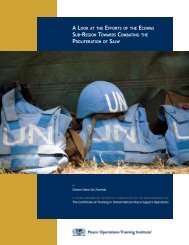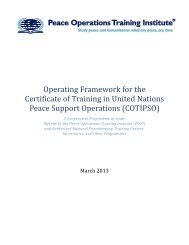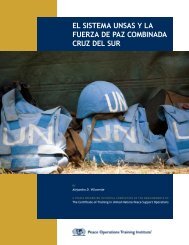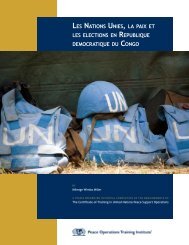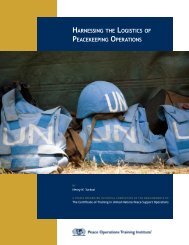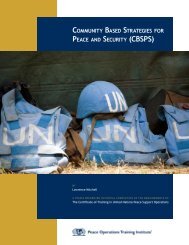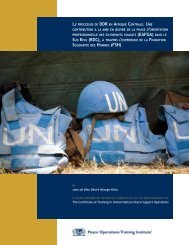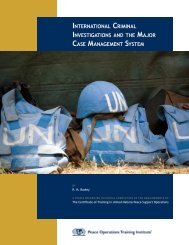money laundering best practices, lessons to be learnt and steps
money laundering best practices, lessons to be learnt and steps
money laundering best practices, lessons to be learnt and steps
- No tags were found...
You also want an ePaper? Increase the reach of your titles
YUMPU automatically turns print PDFs into web optimized ePapers that Google loves.
(subject) must inform the Office <strong>be</strong>fore they actually perform the transaction about the time whenit will take place. They are obliged <strong>to</strong> pass the written notification within three days in case theyinformed the office by phone. Note on the transaction has <strong>to</strong> <strong>be</strong> written <strong>and</strong> registered in case ofverbal notification. However, in case that the body bound by law (subject) is not in the position <strong>to</strong>inform the office in time, due <strong>to</strong> the nature of the transaction, it is obliged <strong>to</strong> do the same within24 hours after the transaction was completed at latest. Art 11 also foresees that state bodies, localself governance <strong>and</strong> other legal persons with public authorities are obliged <strong>to</strong> submit data neededfor discovering of <strong>money</strong> <strong>laundering</strong> <strong>to</strong> the Office.Croatian Law on Prevention of Money Laundering does not explicitly say that FinancialInstitutions <strong>and</strong> their employees are protected from civil <strong>and</strong> criminal liability for breach of thelimitations of disclosing argument determined in the contract when they are bona fide informingthe Office as requested in Recommendation No 14., as it says they are obliged <strong>to</strong> inform theOffice in cases already prescri<strong>be</strong>d <strong>and</strong> whenever they suspect <strong>money</strong> <strong>laundering</strong> activity. TheLaw in Chapter IV also provides for the confidentiality of the collected information.Subjects of the Law are obliged <strong>to</strong> finance regular <strong>and</strong> permanent education of their employees inaccordance with FATF Recommendation 15 <strong>and</strong> as foreseen in the Rulebook on Implementationof the Law on Prevention of Money Laundering. Also, the financial institution is obliged <strong>to</strong>inform <strong>and</strong> educate its employees in new techniques of performing transactions <strong>and</strong> about waysof notifying the Office. The Rulebook also determines in Art 19 that financial institutions areobliged <strong>to</strong> perform internal audit on the implementation of the Law.Croatian Law does not prescri<strong>be</strong> any special st<strong>and</strong>ards in employment in order <strong>to</strong> secure highst<strong>and</strong>ards. As put forward in Art 16 of the Rulebook, requirements are set only for the profile ofthe person dealing with <strong>money</strong> <strong>laundering</strong> examinations. The Rulebook is not clear whether thesame st<strong>and</strong>ards should <strong>be</strong> applied <strong>to</strong> the two deputies. The requirements are set <strong>to</strong>: Croatiancitizenship, clear of criminal investigation or prosecution, three years of experience in relevantwork field, knowledge in business of financial institutions, relevant education. In para 2 of thesame Article the Rulebook leaves space for the financial institution <strong>to</strong> set up its own additionalrules.Money Laundering Best Practices,Lessons <strong>to</strong> <strong>be</strong> Learnt in the Balkan RegionWritten by Tamara BrneticPage 21 of 58




